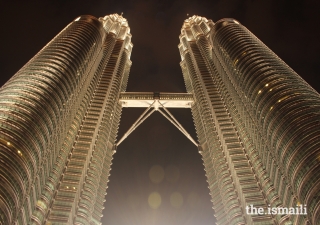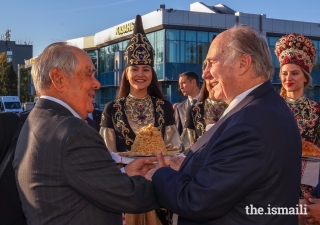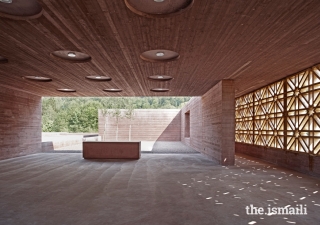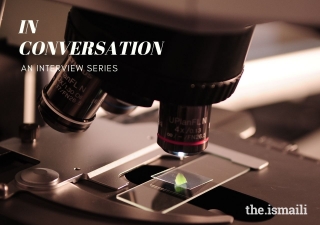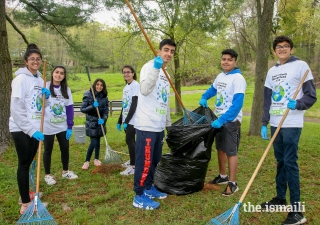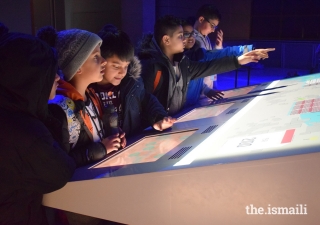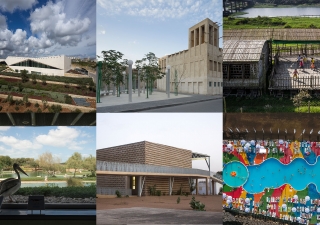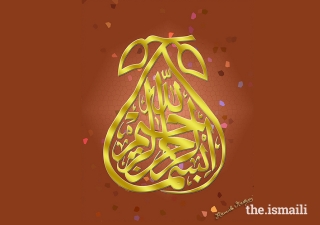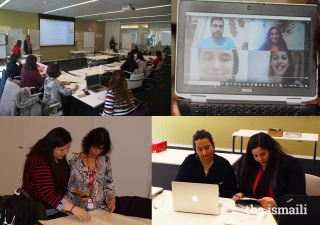What's New
Later this week, Mawlana Hazar Imam will preside over the 14th cycle of the Aga Khan Award for Architecture. To mark this occasion, we explore some of the important questions surrounding the theme of architecture and the built environment.
Earlier today, Mawlana Hazar Imam arrived in Kazan, Russia to preside over the 14th ceremony of the Aga Khan Award for Architecture. Hazar Imam was joined by Princess Zahra and her daughter Sara; Prince Hussain and his fiancée Ms Elizabeth Hoag; and Princess Salwa and Prince Irfan.
We don’t often think about it, but architecture is everywhere. The philosopher and author Alain de Botton has said, “In an odd but quietly very important way, works of architecture ‘speak’ to us. Some buildings, streets and even whole cities seem to speak of chaos, aggression or military pride; others seem to be whispering to us of calm or graceful dignity, generosity or gentleness.”
Originally intended to help with productivity tasks such as email, calendars, and contact lists; mobile apps have expanded into other areas such as games, location-services, purchasing, and countless others. Here we feature three Ismaili entrepreneurs who have ventured into the app space, and are helping others through their technology.
The.Ismaili is pleased to publish an interview with Dr El-Nasir Lalani, Founding Director and Professor of Stem Cell Biology and Translational Medicine at the Aga Khan University’s Centre for Regenerative Medicine. Professor Lalani discusses the implications of scientific breakthroughs in a rapidly changing world, and the potential of stem cell research to better treat diseases in the future.
Science has provided humankind with countless advancements, but also the ability to cause damage to the environment. Through awareness, education, and action, small steps at the individual level can lead to collective positive change. In this vein, Ismailis across the United States have taken steps to help sustain the planet’s resources for the future.
Due to advances in technology, the landscape of work and jobs has changed significantly in the last 30 years. Some industries have progressed rapidly, while others have declined, which has shifted and disrupted standards of living and career aspirations. As the relationship between virtual and real becomes ever more blurred, how can we prepare for the next 30 years?
With the growth of artificial intelligence, machine learning, big data, and social media, young Ismailis around the world are preparing themselves to be at the forefront of newly emerging fields of endeavour.
In an effort to better understand the mysteries of the cosmos, and taking-off into its second year, Space Camp — an initiative of the Aga Khan Education Board (UK) — took 32 young participants from across the UK on an unforgettable space mission.
Earlier this week, six winners of the 2019 Aga Khan Award for Architecture cycle were announced, recognising a wide variety of projects in Bahrain, Bangladesh, Palestine, the Russian Federation, Senegal, and the United Arab Emirates.
The art of calligraphy is one that embraces tradition, but it has also evolved over the ages. With the advent of computer graphics and other technologies, new perspectives on this timeless art form have afforded artists with opportunities to experiment.
Being part of the knowledge society and sharing knowledge in multiple ways is an ethic and tradition that Ismailis have inherited from history. It is a responsibility that contributes to a better quality of life for ourselves and others, and ensures a better future for generations to come. Following in this tradition, The Institute of Ismaili Studies (IIS) has partnered with TKN volunteers to help prepare students for graduate-level studies.

